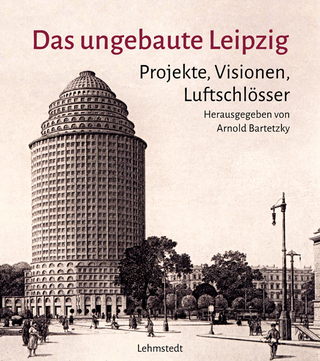
The Routledge Handbook of Comparative Economic Systems
Routledge (Verlag)
978-0-367-70045-4 (ISBN)
The Routledge Handbook of Comparative Economic Systems examines the institutional bases of economies, and the different ways in which economic activity can function, be organized and governed. It examines the complexity of this academic and research field, assessing the place of comparative economic studies within economics, paying due attention to future perspectives, and presenting critically important questions, analytical methods and relative approaches. This complements the recent revival of the systemic view of economic governance, which was accelerated by the COVID-19 pandemic and likely even more the renewed East-West clash epitomized by the Russian invasion of Ukraine and the West’s reaction to it.
The Handbook is divided into five parts. Each part deals with an issue of relevance for the discipline. The first and second parts look at the subject, content and approach of the discipline and its comparative method. The third part looks at the idiosyncratic nature of different economic systems and their constituent elements. The fourth part considers the outcomes that different economic systems generate and how these outcomes change following the evolution and transformation of economic systems. The last part takes stock and looks ahead at the challenges, from a theoretical and applied perspective, and the exogenous and endogenous factors promoting the advancement of the discipline, including the interaction between and competition among varied approaches and opposing paradigms.
The Handbook brings together leading international contributors to reflect on the relevant debates and case or country studies, provides a balanced overview of the results achieved and current knowledge, as well as evolving issues and new fields of research. The book provides researchers, students and analysts with a complete, critical and forward-looking presentation and analysis of the content, development, challenges and perspectives of comparative economic studies.
Chapters 4 and 22 of this book are available for free in PDF format as Open Access from the individual product page at www.routledge.com. Chapter 4 has been made available under a Creative Commons Attribution 4.0 license and Chapter 22 has been made available under a Creative Commons Attribution-Non Commercial-No Derivatives 4.0 license.
Bruno Dallago is Professor of Economics at the Department of Economics and Management, University of Trento, Italy. Sara Casagrande is a post-doc research fellow in comparative European Studies at the University of Trento, Italy.
Introduction, Sara Casagrande and Bruno Dallago (University of Trento) Part I - Comparative economic studies and the economic system: Theoretical and analytical approaches 1. Hans-Jürgen Wagener (Europa-Universität Viadrina Frankfurt), Comparative economic systems and economic theory 2. Vittorio Valli (Department of Economics and Statistics "Cognetti De Martiis" – University of Turin), The contemporary history of comparative economic studies 3. Steven Rosefielde (University of North Carolina – Chapel Hill), Economic Systems: Nature, Performance, Prospects 4. Claudius Gräbner-Radkowitsch (Europa University Flensburg, Department of Pluralist Economics Johannes Kepler University Linz, Institute for the Comprehensive Analysis of the Economy ZOE. Institute for future-fit economics, Cologne), Elements of an evolutionary approach to comparative economic studies: complexity, systemism, and path dependent development 5. Nadia von Jacobi (University of Trento), Institutional Interconnections and the Performance and Change of Economic Systems 6. Paul Dragos Aligica (University of Bucharest and George Mason University) and Virgil Iordache (University of Bucharest), Comparative economic systems and the issue of resilience. Overview of the classical literature and basic problems of conceptualization 7. Richard Pomfret (University of Adelaide, Australia and The Johns Hopkins University SAIS Europe, Bologna, Italy), The Age of Equality and the new conflicts between economic systems Part II - The comparative method: Comparative economics and comparisons of economic systems and economies 8. H. Stephen Gardner (Baylor University), Principles and Methods for Classification of Economic Systems and Comparing Their Economic Performance 9. J. Barkley Rosser, Jr. (James Madison University) and Marina V. Rosser (James Madison University), Comparing Alternative Economic Systems: Old and New Approaches 10. James K. Galbraith (Lyndon B. Johnson School of Public Affairs, the University of Texas at Austin), A comparison of major world inequality data sets 11. Masaaki Kuboniwa (Institute of Economic Research, Hitotsubashi University, Tokyo, Japan), A Comparative Analysis of Trade in Value Added Across the EU and Russia 12. Jerg Gutmann (Institute of Law & Economics, University of Hamburg and CESifo, Munich) and Stefan Voigt (Institute of Law & Economics, University of Hamburg and CESifo, Munich), Conceptualization and measurement of institutions 13. José-García Solanes (Universidad de Murcia, Department of Economic Analysis, Campus de Espinardo, Murcia, Spain), Arielle Beyaert (Universidad de Murcia, Department of Economic Analysis, Campus de Espinardo, Murcia, Spain) and Laura López-Gómez (Universidad de Murcia, Department of Economic Analysis, Campus de Espinardo, Murcia, Spain), Convergence in formal and informal institutions and long run economic performance in the Euro area 14. Satoshi Mizobata Institute of Economic Research, Kyoto University, Kyoto, Japan) and Ichiro Iwasaki (Institute of Economic Research, Hitotsubashi University, Tokyo, Japan), Comparative Economic Studies of Transition: Four Lessons from Analytical Reviews of the Literature Part III - Actors, values and interactions in economic systems 15. Verena Régent (WPZ Research, Vienna) and Brigitte Ecker (WPZ Research, Vienna), Transversal skills in higher education curricula: Empirical evidence from Austria, Ireland and Portugal 16. Friederike Welter (Institut für Mittelstandsforschung (IfM) Bonn and University of Siegen, Germany) and Mirela Xheneti (University of Sussex Business School, UK), Incentives, values, and the creation of opportunities for action and interaction 17. Quentin Wodon (World Bank), What Is the Potential Cost of Gender Inequality in Lost Earnings? Global Estimates Based on the Changing Wealth of Nations 18 . Donato Cutolo (Department of Management – University of Bologna) and Martin Kenney (Department of Human Ecology – University of California), Entrepreneurship in the Platform Economy: Power Asymmetries and Risk 19. Csaba Makó (Institute of the Information Society, University of Public Service, Budapest, Hungary), Miklós Illéssy (Institute of Sociology, Centre for Social Sciences, Eötvös Loránd Research Network - Hungarian Academy of Sciences Centre of Excellence) and Saeed Nosratabadi (Centre for Social Sciences, Budapest, Hungary), Is It Possible to Improve Simultaneously Firm’ Performance and Workplace Well-being? (Small and Medium-sized Enterprises in European Comparison) 20. Wladimir Andreff (University Paris 1 Panthéon-Sorbonne), Multinational companies based in the New Wave Emerging Countries and Post-Communist Transition Economies 21. Alexander Chepurenko (National research university Higher School of Economics, Moscow - Federal Center of Theoretical and Applied Sociology of the Russian Academy of Sciences, Moscow) and Miklos Szanyi (University of Szeged, Faculty of Economics and Business Administration, Szeged - KRTK Institute of World Economics, Budapest), Parallel processes and divergent outcomes: the transformation of former socialist countries Part IV - Markets, governance, performance and change of economic systems 22. László Csaba (Central European University, Vienna and Corvinus University of Budapest), Systemic Governance 23. Andrea Boltho (Magdalen College, University of Oxford), Institutional and policy determinants of economic specialization 24. Pranab Bardhan (University of California, Berkeley), Governance Issues in Development: A China-India Comparative Study 25. Pierfederico Asdrubali (John Cabot University) and Paolo Pasimeni (BSoG - Vrije Universiteit Brussel), Trade interdependencies in the EU single market 26. Miklós Rosta (Corvinus University of Budapest, Hungary), Varieties of Capitalism in Central and Eastern Europe: a ferry boat region 27. Marek Dabrowski (Bruegel (Brussels), Higher School of Economics (Moscow), and CASE - Center for Social and Economic Research (Warsaw)), Financial globalization, financial regulation and macroeconomic policy 28. David Kemme (Fogelman College of Business and Economics, University of Memphis, TN, USA), Bhavik Parikh (Gerald Schwartz School of Business, St. Francis Xavier University, Antigonish, Nova Scotia, Canada) and Tanja Steigner (School of Business, Emporia State University, Emporia, KS, USA), International Tax Evasion: Sources, Paths, Destinations Part V - Looking back and forging ahead: where are comparative economic studies heading at? 29. Vilde Lunnan Djuve (Department of Political Science, University of Oslo) and Carl Henrik Knutsen (Department of Political Science, University of Oslo), How economic systems and performance influence regime change 30. William Hynes (OECD), Alan Kirman (EHESS Paris and NAEC OECD), Clara Latini (OECD) and Davide Luzzati (OECD), A Systemic Approach to Economic Resilience 31. Vladimir Popov (Central Economics and Mathematics Institute of the Russian Academy of Sciences – CEMI RAN), Global health care system after coronavirus: Who has the responsibility to protect 32. Fan Gang (Peking University and National Economic Research Institute, China) and Lailai Li (Stockholm Environment Institute), Economics of Climate Changes with comparative perspectives 33. Misbah Tanveer Choudhry (Qarshi University), Enrico Piero Marelli (University of Brescia, Department of Economics and Management), and Marcello Signorelli (University of Perugia, Department of Economics), Youth Labour Market Performance and Big Macroeconomic Shocks 34. Panagiotis E. Petrakis (National and Kapodistrian University of Athens -Greece), The Political Economy of Alternative Economic Futures 35. Mikhail Stolbov (Moscow State Institute of International Relations, MGIMO University) and Maria Shchepeleva (National Research University Higher School of Economics), The interaction between financial development, macroprudential policy and economic growth: a cross-country perspective 36. Euston Quah (School of Social Sciences, Nanyang Technological University, Singapore) and Iuldashov Nursultan (School of Social Sciences, Nanyang Technological University, Singapore), China’s Belt and Road Initiative: New Research Agenda of Global Infrastructure Initiatives 37. Kumiko Haba (Aoyama Gakuin University), From Economic Competition to the "Alliance of Values": Reconstructing a "New World Order" or a "New Cold War"? 38. Conclusions, Bruno Dallago (University of Trento), Sara Casagrande (University of Trento) with Horst Brezinski (TU Bergakademie Freiberg and Poznan University of Economics and Business), Elodie Douarin (School of Slavonic and East European Studies - SSEES, UCL), Paul Roderick Gregory (University of Houston, Hoover Institution and German Institute for Economic Research), Justin Yifu Lin (Peking University), Martin Myant (European Trade Union Institute), Vito Tanzi (International Institute of Public Finance, Munich), Andrei Yakovlev (Higher School of Economics, Moscow).
| Erscheinungsdatum | 16.12.2022 |
|---|---|
| Reihe/Serie | Routledge International Handbooks |
| Zusatzinfo | 81 Tables, black and white; 117 Line drawings, black and white; 117 Illustrations, black and white |
| Verlagsort | London |
| Sprache | englisch |
| Maße | 174 x 246 mm |
| Gewicht | 1540 g |
| Themenwelt | Geisteswissenschaften ► Geschichte |
| Sozialwissenschaften ► Politik / Verwaltung | |
| Wirtschaft ► Allgemeines / Lexika | |
| Wirtschaft ► Volkswirtschaftslehre | |
| ISBN-10 | 0-367-70045-X / 036770045X |
| ISBN-13 | 978-0-367-70045-4 / 9780367700454 |
| Zustand | Neuware |
| Haben Sie eine Frage zum Produkt? |
aus dem Bereich


